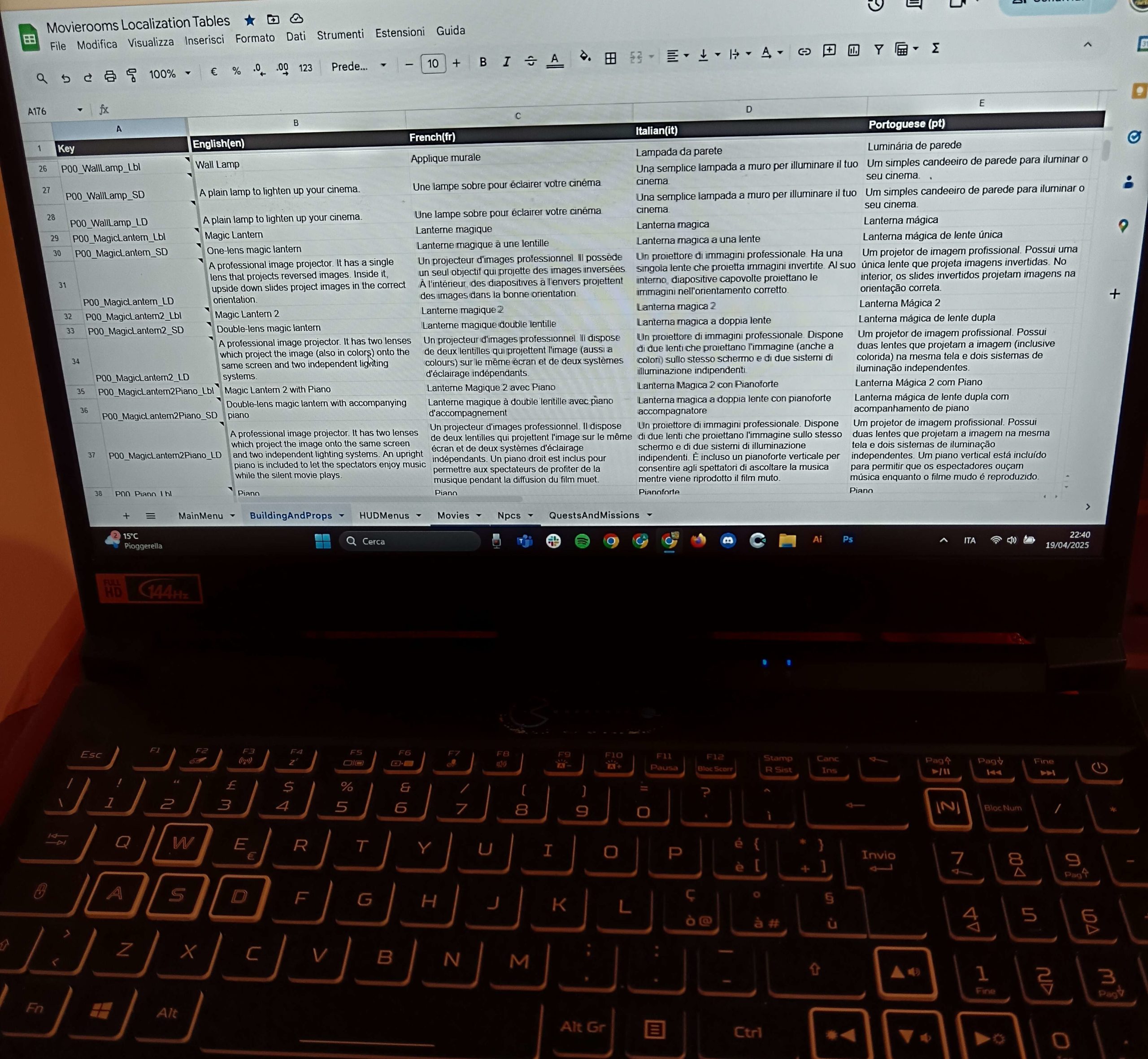
Localizing an Indie Game with No Budget: A Matter of Passion (and Sleepless Nights)
In the world of indie games, every choice is a gamble. And when it comes to localization—translating and adapting your game into multiple languages—the challenge can feel overwhelming, especially when there’s no budget for it.
But for us at Movierooms: Cinema Management, and for every project we create, passion always wins.
Why localize, if we’re such a small team?
The answer is simple: we want everyone to enjoy our game, no matter what language they speak. It’s not just about expanding our reach—it’s about making our world more accessible.
Our game is about creativity, dreams, and cinema—and those are universal.
The reality of being an indie team
We’re a small team with no dedicated localization budget. No professional translation agency, no fancy AAA localization pipeline. Just us, a humble .csv (or .json, or .xls, or all of them at once), Google Translate ready for panic moments, and lots of patience.
While many were unwrapping chocolate eggs on Easter Eve, we were unwrapping lines of dialogue—translating our game into English, Italian, French, and Portuguese.
Why? Because we believe in what we’re building.
And because we know that every player who feels “at home” in their own language is a milestone worth celebrating.
Translation isn’t just translation
Localization is more than just converting words from one language to another. It means adapting tone, expressions, puns, and cultural references.
It means constantly asking: Does this line still work in French? Will this menu label make sense in Portuguese?
Every language has its own soul, and each version of the game should reflect the spirit of the original—without sounding forced. That takes time. And often, more than one rewrite.
What we’ve learned
Less is more: Keeping texts short and clean helped a lot during translation.
Structure is everything: Having a well-organized system of keys and strings saved us from chaos.
Native speakers are gold: Whenever possible, we asked native-speaking friends and fellow devs for quick checks and feedback.
In conclusion
Localizing an indie game with no budget is tough—but not impossible. It’s a love letter to our players.
If even one person feels more immersed just because they could play in their own language, then all those late-night hours were absolutely worth it.
Happy Easter—and happy translating to all the devs out there who keep creating… even while the world is on holiday. 🎮
